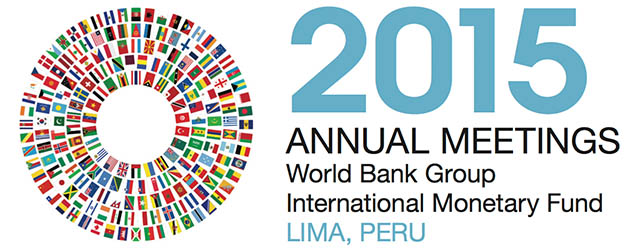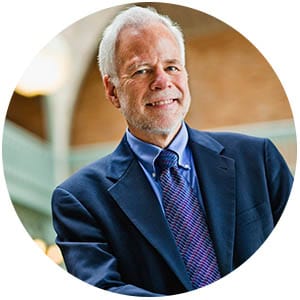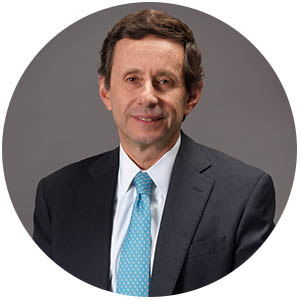Developing countries have long sought a greater voice in running the IMF and World Bank. The rise of rival development banks gives them more options—and more leverage.

Back To Table Of Contents

This year’s annual meetings of the International Monetary Fund and World Bank promise plenty of fireworks. Topics on the agenda at the gathering in Lima, Peru, this month include foreign exchange volatility, the slowdown of emerging markets and the seemingly never-ending crisis in Greece. But officials from emerging markets nations will have a different, pricklier agenda. They want a bigger say in how the IMF and World Bank are run.
It’s a contentious issue, one that could alter the face of the two multilateral institutions. So far, efforts to reform the governance of the Fund and the World Bank have stalled, disillusioning authorities in some emerging markets countries. But with the advent of two rival organizations—the Asian Infrastructure Investment Bank (AIIB) and the New Development Bank Brics—those officials have a great deal more leverage in the discussions.
“This subject has been on the table for a while,” says Andrea Montanino, global business and economics program director at the Atlantic Council in Washington. “But with the new Asian Infrastructure Investment Bank and Brics Bank, it is going to be front and center.”
Officials from China, which launched the AIIB and is a financial backer of the Brics bank, will no doubt demand more voting rights for itself and other developing countries. Lack of progress will not sit well with China. Now, however, officials in Beijing have options. “As usual, at the meetings China will bring up the issues of raising the voice of emerging markets economies,” says Jie Li, Professor at the Central University of Finance and Economics in Beijing. “But the AIIB and Brics bank will surely cut back China’s interests in the IMF and World Bank.”
With new competitors, the raison d’être of the IMF and World Bank could be called into question. Dissatisfied governments can start looking elsewhere for help. “There will definitely be what I would call conditionality arbitrage between these different structures,” says Jannie Rossouw, head of the School of Economic and Business Sciences at Wits University in Johannesburg, South Africa. “Countries in Africa will look at the conditions of financial assistance offered by the IMF as opposed to this new venture and seek the better terms.”

Much depends on the US Congress, which may be bad news for countries seeking greater influence at the IMF. Legislators in Washington, DC, have been blocking reforms already on the table. Now, with the 2016 presidential campaign in full swing, politics in the US is overshadowing the legislative agenda. Although president Barack Obama supports the changes, time is growing short. “There is no chance that this Congress will do anything,” says Desmond Lachman, resident fellow at the American Enterprise Institute in Washington and a former deputy director in the IMF’s policy development and review department. “It is even more against the reform notion than the previous one that had already opposed these measures.”
With the future role of the IMF hanging in the balance, officials have been looking into an interim solution that doesn’t require US approval. “This would clearly not be fully satisfactory for emerging market economies,” says Montanino, who is a former executive director of the IMF, “But at least it would show good will on the part of the Fund.”
WORSE OFF
Oddly, though China is championing the cause of emerging markets nations at the IMF and World Bank gatherings in Lima, those countries will arrive at the meetings in a more vulnerable state—owing in large part to events in the People’s Republic. The economic slowdown in the country has hurt exports from emerging markets and contributed to the plunge in commodity prices. In Latin America, economies like Brazil’s are dealing with the sudden end of a decade-long bull run. “The commodity cycle and related decline of investment in commodities, compounded in some cases by internal political turmoil, have been a drag,” says José de Gregorio, professor in the economics department at the University of Chile and former governor of the country’s central bank. “Since we won’t see a revival of them [commodity purchases and investments] in the near term, the big question is what to do to regain growth.”
Declining prices of natural resources represent a threat for sub-Saharan Africa as well, as does the specter of the US Federal Reserve’s raising interest rates. “Other central banks might have to follow suit or else see a sharp depreciation of their currencies vis-à-vis the US dollar, with a concomitant increase in inflation,” says Rossouw. “This can in itself usher in a new period of financial instability.”
Given the recent swings in global stock markets, the Fed may hold off on easing quantitative easing. Even if the Fed does end its asset-buying binge, the policy change has been widely anticipated, and thus might mitigate its negative effects. “My take is that it won’t be so dramatic,” says de Gregorio, “not like we saw during the 2013 ‘taper tantrum.’”
Countries in Africa will look at the…financial assistance offered by the IMF as opposed to this new venture and seek the better terms.
Jannie Rossouw, Wits University
Exchange rate uncertainty is also coming from China, which has been tweaking its peg to the US dollar to increase the appeal of the renminbi as an international currency and, some say, to allow it to depreciate to spur exports. Beijing rejects this accusation. According to Li, “China’s view is that it is not interested in a competitive devaluation as this is bad for Chinese economic growth because it would cause devaluation expectations and capital flight. What China is doing,” he says, “is to allow more market force in setting the renminbi foreign exchange rate.”
VANITY PROJECT
At stake is, among other things, the inclusion of the renminbi in the IMF’s Special Drawing Rights (SDR), a basket of currencies that includes the euro, Japanese yen, pound sterling and US dollar. In August the IMF announced it would not make any decision on the issue until at least 2016. “There is no need to hurry,” says Li. If it doesn’t happen this year, China will still engage in whatever reforms it needs.”
The view from the US is less sanguine. “Renminbi internationalization is partly a vanity project for Chinese officialdom and partly a component of the broader project of financial reform and rebalancing in China,” says Barry Eichengreen, professor of economics and political science at the University of California, Berkeley, and a former senior policy adviser at the IMF. He grants that financial reform and rebalancing is a good thing. “There are also risks,” he says, including “premature capital account liberalization and of the Chinese authorities’ losing control of the process.”
The crisis in Greece will undoubtedly add to the crammed agenda at this month’s meetings, with the Fund called on to decide if it will participate in a third bailout of the country by the European Union. “I think there will be quite a debate on that, but especially on how debt sustainability should be assessed in cases as such,” says Montanino. “Greece will be used as a sort of case study for whether we need a framework for debt restructuring and whether the lesson is that it should come earlier and deeper.”



